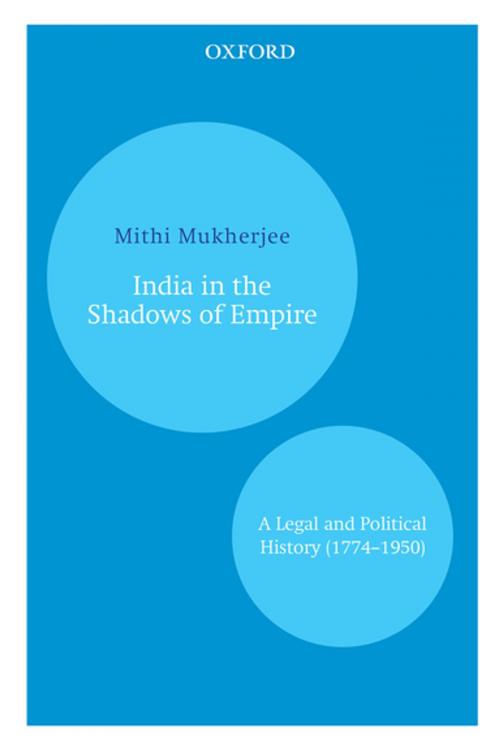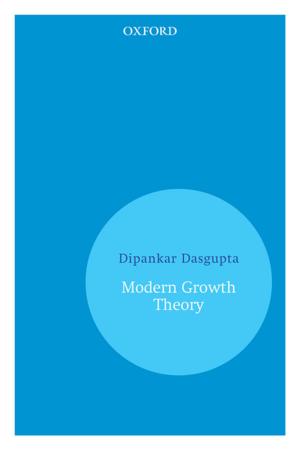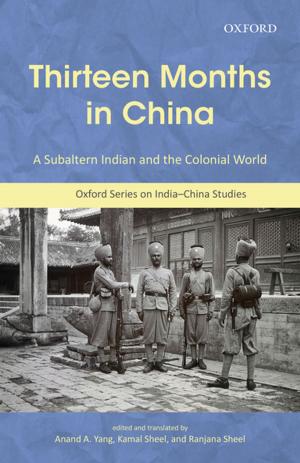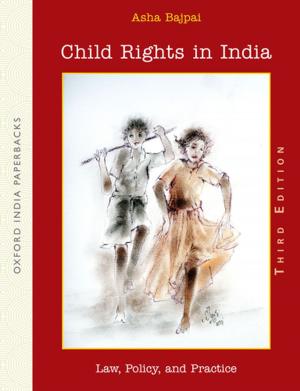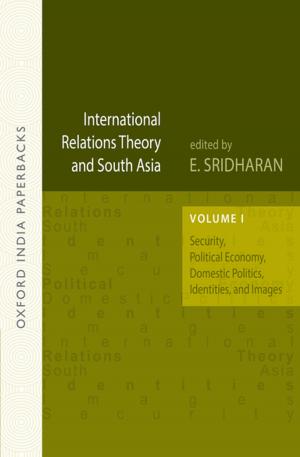India in the Shadows of Empire
A Legal and Political History (1774–1950)
Nonfiction, History, Asian, India, Reference & Language, Law, Social & Cultural Studies, Political Science| Author: | Mithi Mukherjee | ISBN: | 9780199088119 |
| Publisher: | OUP India | Publication: | November 25, 2009 |
| Imprint: | OUP India | Language: | English |
| Author: | Mithi Mukherjee |
| ISBN: | 9780199088119 |
| Publisher: | OUP India |
| Publication: | November 25, 2009 |
| Imprint: | OUP India |
| Language: | English |
This book explains the postcolonial Indian polity by presenting an alternative historical narrative of the British Empire in India and India's struggle for independence. It pursues this narrative along two major trajectories. On the one hand, it focuses on the role of imperial judicial institutions and practices in the making of both the British Empire and the anti-colonial movement under the Congress, with the lawyer as political leader. On the other hand, it offers a novel interpretation of Gandhi's non-violent resistance movement as being different from the Congress. It shows that the Gandhian movement, as the most powerful force largely responsible for India's independence, was anchored not in western discourses of political and legislative freedom but rather in Indic traditions of renunciative freedom, with the renouncer as leader. This volume offers a comprehensive and new reinterpretation of the Indian Constitution in the light of this historical narrative. The book contends that the British colonial idea of justice and the Gandhian ethos of resistance have been the two competing and conflicting driving forces that have determined the nature and evolution of the Indian polity after independence.
This book explains the postcolonial Indian polity by presenting an alternative historical narrative of the British Empire in India and India's struggle for independence. It pursues this narrative along two major trajectories. On the one hand, it focuses on the role of imperial judicial institutions and practices in the making of both the British Empire and the anti-colonial movement under the Congress, with the lawyer as political leader. On the other hand, it offers a novel interpretation of Gandhi's non-violent resistance movement as being different from the Congress. It shows that the Gandhian movement, as the most powerful force largely responsible for India's independence, was anchored not in western discourses of political and legislative freedom but rather in Indic traditions of renunciative freedom, with the renouncer as leader. This volume offers a comprehensive and new reinterpretation of the Indian Constitution in the light of this historical narrative. The book contends that the British colonial idea of justice and the Gandhian ethos of resistance have been the two competing and conflicting driving forces that have determined the nature and evolution of the Indian polity after independence.
